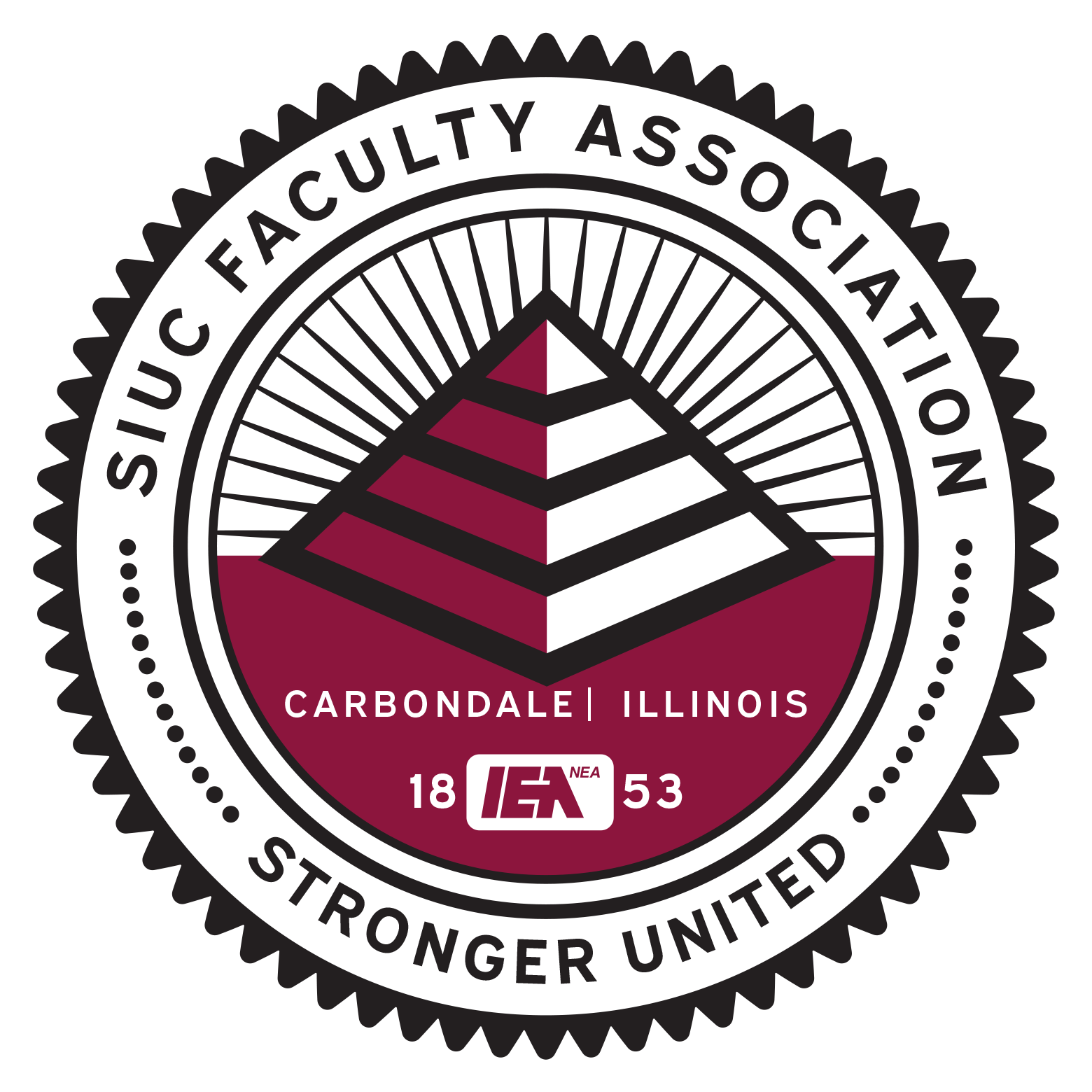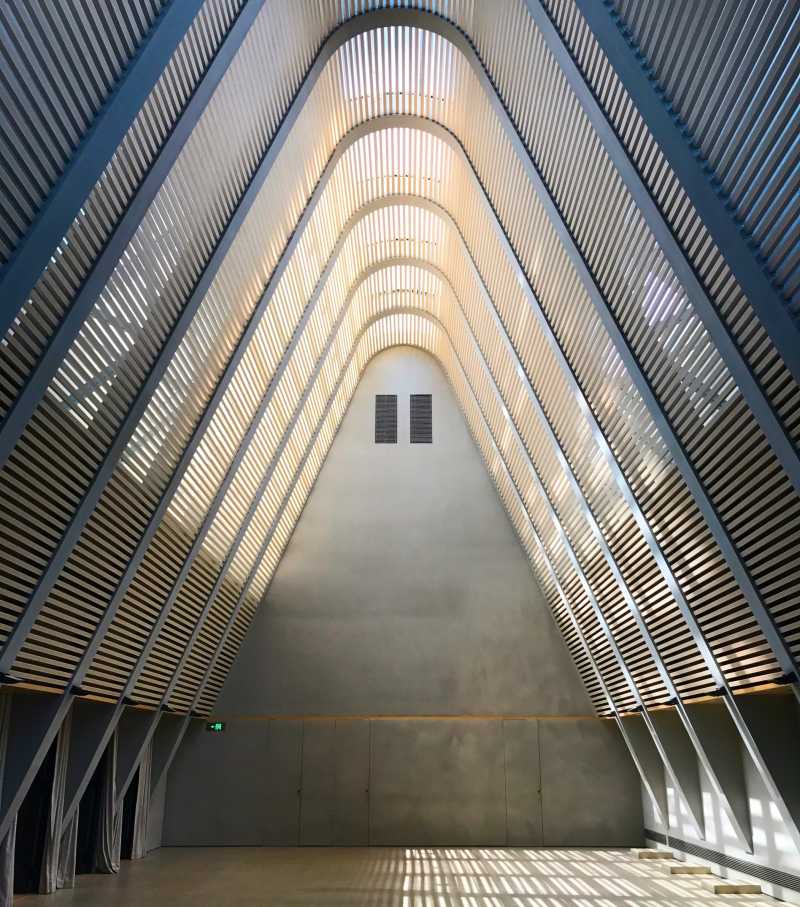Dear colleagues,
I devote this newsletter to commentary on the SIU Board of Trustees meetings on Wednesday and Thursday of last week (December 13 and 14). This commentary will make for a long email, and I cannot even promise that this is our last newsletter before the end of the year: we will report back soon on the grievance about Article 9 we are in the process of finalizing. (If you are interested in joining that grievance, please let me know). But the meetings of last week were vital, perhaps even a turning point; and no one doubts the importance of the current debate for the future of SIUC.
At the bottom you can find some links news coverage and other items, including the infamous Camaro & Yugo slide show.
Faculty, staff, and students turned out in impressive numbers for the meeting last week. Speakers were almost unanimous in opposing the chancellor’s plans, and included not only faculty but the leaders of both the undergraduate and graduate student governments. And large audiences supported these speakers.
In his press conference after the meeting Thursday, the chancellor, asked what he had learned from the meetings, wisely granted that he had to “redouble his efforts” to reach out to undergraduates. But he said nothing about graduate students; perhaps he has given up on them. He has not retreated from his insistence that graduate students are not qualified to be instructors of record; he continues to refuse to meet with their constituency group (the GPSC), which has now censured him; and he has sacked the dean of the graduate school, who was a vigorous advocate for graduate education at SIUC in general and for the pursuit of diversity in graduate education in particular. The chancellor also did not suggest that he had learned anything from faculty over the past few days, or had any work to do to build relations with them.
The dominant image from the meetings was no doubt the beat-up old Yugo the chancellor showed trustees on Wednesday. Once an SIUC degree was the equivalent of shiny new sports car, the chancellor said; now we are a used-up Yugo. Students and faculty recognized this for the insult it was, and trustee Shirley Portwood explicitly condemned it. The chancellor attempted to retreat on Thursday, claiming in a press conference after the meeting that he meant merely that SIUC was no longer perceived to be what it once was. But that is not what he said Wednesday, as this article in the Southern makes clear. And that is not the premise he needs for his argument.
For the Yugo “gaffe” is one of those slip-ups that shows you what a speaker really believes. The Yugo both reveals the chancellor’s evaluation of SIUC and provides the major premise for his approach to his job. For if SIUC is“substandard across the board,” as the chancellor said Wednesday, the bar for what counts as prudent change can be set very low indeed. You can persuade yourself that one vague proposal suffices, duplicated with a bit of cutting and pasting, to eliminate every department on campus and replace them all with brand new schools. You can simply inform the board of how you plan to remake the core curriculum, tell them what new programs you think SIUC needs, and present your own mission statement for SIUC. There’s little call for evidence, argument, deliberation, or consent: it’s all about “will” (a word trustee Marsha Ryan invoked on Thursday) and vision.
We have heard often in recent weeks that change is hard. Trustee Ryan is right that change requires willpower. But successful change also requires the hard work of research, consultation, and consensus building. It requires more than rearranging departments on a giant whiteboard. We all recognize that SIUC is in an enrollment crisis. But the chancellor has presented us with little reason to believe that any of his fixes will get us out of this crisis. Recognition that we need to change does not mean that we should support whatever change the chancellor may propose, regardless of whether it is sound or not, or that we should grant that it doesn’t matter whether we change as the result of deliberation or diktat.
The chancellor has made some modifications to the location of current departments within his new schools. To that extent he is certainly listening. But he has yet to make the case that the most important element in his plan, the elimination of all academic departments, would improve enrollment. On Wednesday, in fact, he granted that restructuring would not, by itself, help enrollment. Yet he is insisting on it. This is why the universal elimination of departments has generated wide and deep opposition, including from the Faculty Senate, the Graduate Council, the Graduate and Professional Student Council, and Undergraduate Student Government. Some faculty do support significant elements of the chancellor’s plan, and if faculty in some areas want to form new schools, the FA will have no objection, so long as the administration follows the contractual process. But the chancellor apparently did not consider the opposition of the major academic constituency bodies when telling the board that 70% of the feedback he has received about his plan has been positive.
The chancellor did make one important point on Wednesday, one that found a ready audience in at least one trustee, Phil Gilbert. Administrators and faculty have recognized the need for change at SIUC for a long time, but there has been far too little change. The chancellor pointed to reports released in 2012 and 2013, presumably the Program Changes Review Report of 2012 and the Complementary Practices and Academic Efficiencies Report of 2013. We might add the Joint Task Force Report on Program Prioritization of May 2016 and the Non-Instructional Program Review Report of November 2016.
All these reports, unlike the chancellor’s proposals, were the result of deliberation by committees drawn from faculty and others across campus. These reports should be reviewed for ideas worth pursuing. But while the chancellor argued that those reports made proposals similar to his own, none called for anything like the elimination of all academic departments. And none, in fact, has contributed substantially to Chancellor Montemagno’s own proposals. He has put the 2016 reports on ice, and he revealed in his press conference on Thursday that he had not reviewed the 2012 and 2013 reports before releasing his own plans.
It has become obvious that the chancellor has not done his homework. The chancellor did not take the time to review our checkered history of change proposals, nor did he study institutional peers. The one finding he has released from his campus survey is that people support our current mission statement, but in his various presentations he has essentially proposed his own new vision for campus (see slide 7 of his presentation from 12/13). He has conjured his slew of proposals out of thin air.
The fact that the chancellor has left this work undone does not mean that we do not have work to do. The trustees calling for change at SIUC are not wrong to do so. We have our work cut out for us, whether it is work with this chancellor, if he is willing to work with us, or work without this chancellor.
It is not the role of the FA to restructure the university. It is our task to ensure that faculty have a real role in shaping change. That’s why we are defending the Article 9 process. FA activists are also doing our part to help facilitate change outside the framework of the FA. That’s why some of us are involved with the CCC group—not as a nefarious front for the FA, but because we wish to weigh in on the sorts of substantive questions that faculty should be involved with outside of the union process. We are also involved in our departments and colleges, as are so many other faculty across campus.
It is a mistake to say that the energy displayed by those who spoke up on December 13 and 14 was something negative. Yes, there was opposition to the chancellor, sometimes heated opposition. But there was also pride, pride in the members of the SIUC community who were brave enough to speak up in front of the people with institutional power. I am particularly proud of our principled and passionate student leaders, both graduates and undergraduates. We can turn that pride into action that produces positive change.
The FA will defend the contract and the provisions in it that provide a process for faculty to shape change. The last few days have done much, I am certain, to convince the board of trustees to welcome all proposals that are based on evidence, squarely directed at the crisis before us, and garner widespread support on campus. Developing such proposals is the task before us now.
In solidarity,
Dave Johnson
President, SIUC-FA
Press coverage
“Chancellor proposes third revision of university reorganization.” (DE on meeting of December 13)
“Campus community criticizes chancellor’s reorganization plan to Board of Trustees.” (DE on meeting of December 14)
“Frustration Over SIUC Reorganization Plan Bubbles Over at Board of Trustees Meeting.” (WSIU on meeting of December 14)
“SIUC faculty, students speak out against restructuring plan at Board of Trustees meeting.” (Southern on meeting of December 14)
“Dozens push back about reorganization at SIU Board of Trustees meeting.” (WSIL on meeting of December 14)
“Some offended after Montemagno compares SIUC to a car often called the worst ever made.” (Southern on meeting of December 14)
Alia
Slides from Chancellor Montemagno’s presentation of 12/13 (featuring the Yugo).



